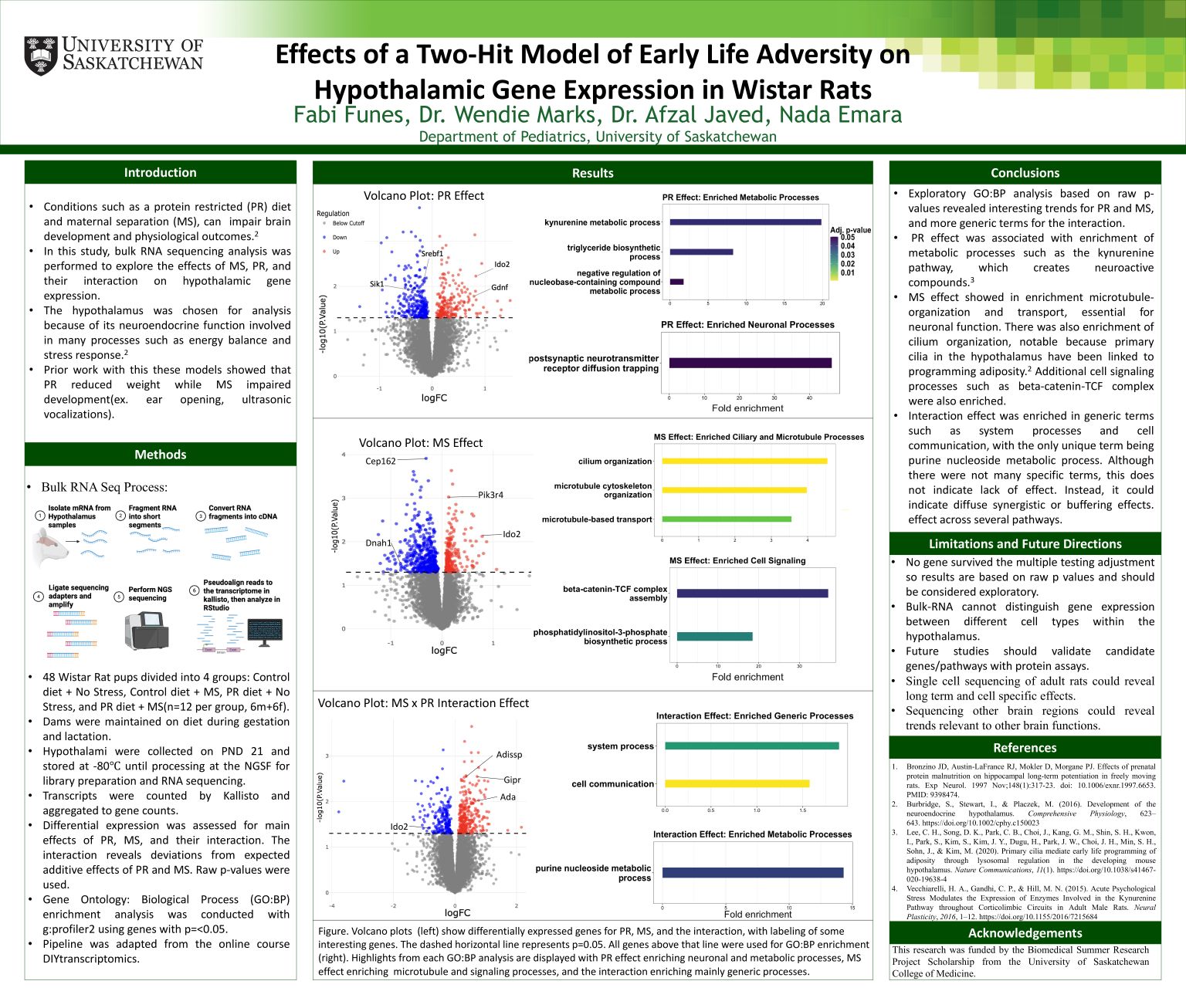
Effects of a Two-Hit Model of Early Life Adversity on Hypothalamic Gene Expression in Wistar Rats
Fabi Funes
Early life adversity can lead to long term physiological and neurobiological outcomes in individuals, including predisposition to psychiatric disorders such as depression and anxiety. In this study, we explored genetic changes caused by early life adversity. Bulk RNA sequencing was performed on the hypothalamus of weaning Wistar rat pups exposed to either control condition, protein restriction (PR) only, maternal separation (MS) only, or both. Differential gene expression was tested for the effects of PR, MS and their interaction. Although no genes passed the multiple testing correction, biological trends were still revealed in Gene Ontology enrichment analysis. PR enriched processes such as the kynurenine pathway, triglyceride biosynthesis, and postsynaptic neurotransmitter receptor diffusion trapping. MS enriched processes involved in microtubule and cilium organization, and cell signaling pathways including the beta-catenin-TCF complex assembly. The interaction enriched broad terms such as cell communication and system processes, which may indicate that the interaction has diffuse synergistic or buffering effects. These findings are preliminary, and may reveal molecular insight into the effects of early life adversity. Future studies should aim to confirm these results with protein assays, and assess long term effects in adult rats.
